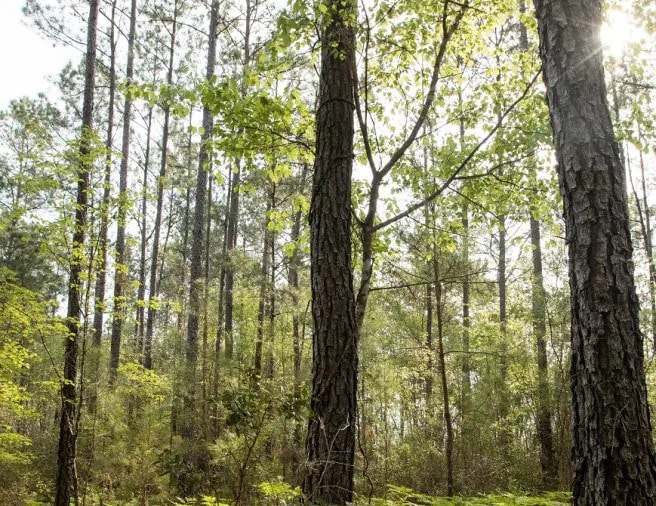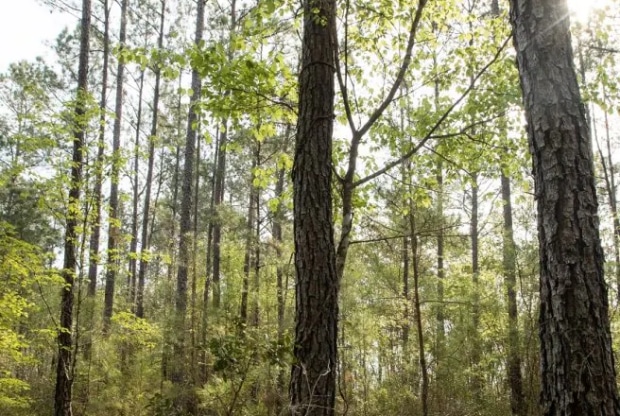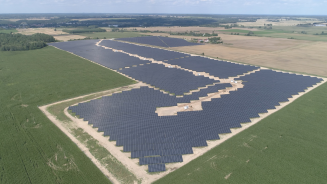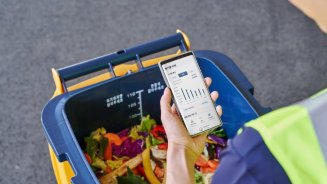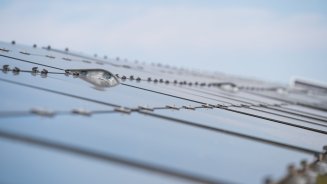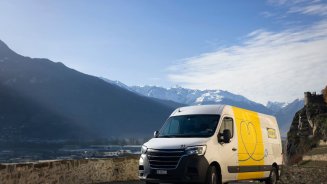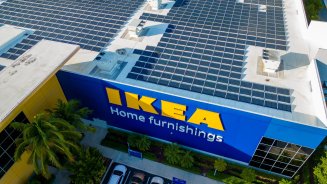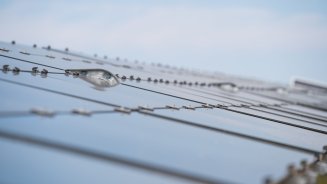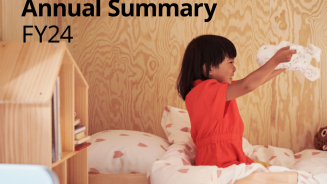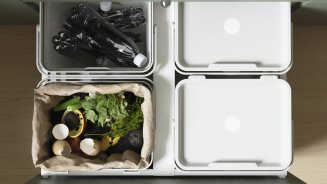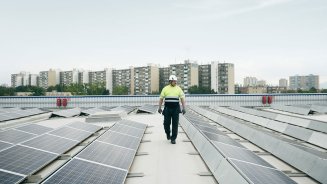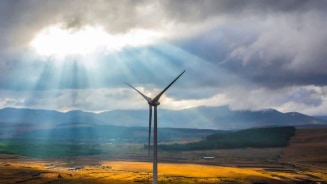Wood is one of the world’s most important renewable resources, and IKEA wants to have a positive influence on its future as a valuable natural material. Forests hold immense value, not only as carbon sinks and reserves for clean water, but also as vital sources of timber, paper, a source of heat and income for local communities, and as spaces of spiritual significance.
“When we think about the many environmental challenges the world faces, commercial forestry is not always the first tool that springs to mind. But it absolutely can have a positive impact on the environment, if it’s performed responsibly, with strict protocols in place“
– Simon Henzell-Thomas, Climate & Nature Manager, Ingka Group
However, these precious resources are currently facing significant threats. Challenges such as illegal logging, and the increasingly damaging impacts of the climate crisis are putting forests at risk, underscoring the urgent need for concerted efforts to protect and sustain them.
How we run our forests today
Ingka Group, the largest IKEA retailer, has been buying forestland in various parts of the world since 2014 and will continue to invest in and manage forests in a responsible way. The company owns and manages around 317,000 hectares (ha) of land, including existing forests and growing new forests. This land is made up of 158,000 ha in the Baltic states, 76,000 ha in the US, 51,000 ha in Romania, 23,000 ha in Aotearoa New Zealand and 8,600 ha in Finland.
“Since buying our first forestland properties our plan has always been to have a long-term, forward-thinking and responsible forest management approach. Every year, the density of our forests is increasing, we plant more trees than are felled, and we are restoring and reforesting land,” says Andriy Hrytsyk, Forestland Investments Manager at Ingka Investments.
Hrytsyk says, that at its core, Responsible Forestry Management is about balancing the ecological, societal and economic factors of forestland. “There are external, agreed industry standards, and we use this as a base and work hard wherever we can to go above and beyond. This is done on a forest-by-forest case, as each is unique in its biodiversity and the role it plays to the community.”
Ingka Group’s Forest Management Plans focus on keeping forests healthy and productive, taking into account species and conditions of trees and other natural resources, goals – in terms of biodiversity, recreation, wood harvesting – and ways in which it plans to harvest, grow new trees and protect nature and wildlife. All forests are home to many different species, and many are protected. Rivers and streams of the forests can contribute to water supplies, so it’s vital these are kept clean.
“When we think about the many environmental challenges the world faces, commercial forestry is not always the first tool that springs to mind. But it absolutely can have a positive impact on the environment, if it’s performed responsibly, with strict protocols in place,” says Simon Henzell-Thomas, Climate & Nature Manager, Ingka Group. “Responsibly managed forests have a lower fire risk, play an important part in carbon removal and storage, and produce materials that are alternatives to more carbon intense materials such as steel and concrete. It can also help contribute to local communities’ livelihoods.”
The role of accountability in responsible forest management
Clearly, robust rules and regulations on local, regional and international levels are important, but they need to serve as a foundation, not a target.
This is where independent certification paired with third-party assessments come into play as an additional tool. They are important in setting and upholding forest management and harvesting rules as well as verifying that our operations are in line with regulations and legislation. Actors such as businesses, environmental groups, industry experts, journalists, and members of the public are welcome to contribute and further strengthen the certification system.
Additionally, businesses need to uphold internal policies and code-of-conduct requirements that are continuously updated as new learnings and input are gathered. Inter IKEA uses IWAY, and Ingka Group has these terms of engagement for the forestland Ingka Group manages.
“As Ingka Group increases our forestland operations, local and indigenous communities need to be central to decision making. It is critical that local traditions are honoured and upheld, and communities and bordering businesses are heard when it comes to planning investments and harvesting timber”, Hrytsyk adds.
The future of Responsible Forestry Management
“Accountability and transparency need to be the cornerstones of responsible forest management”, Henzell-Thomas says. “This is the only way the industry can move forward as a whole”.
Ingka Group is committed to aligning its approach on biodiversity with best practice frameworks, including the first round of guidance from on nature reporting, from the Science Based Targets for Nature (SBTN) and the Taskforce for Nature Related Financial Disclosure (TNFD). It has started to map its impacts and dependencies on nature in line with the SBTN initial guidance, and the company has supported their pilot project. It is now preparing to align reporting with this and support the upcoming mandatory reporting requirements.
“IKEA is reliant on wood as a key material in many of its products. Wood is strong, durable, renewable, recyclable, and when taken care of, wooden items can be passed down through generations. However, this is only true when wood is responsibly sourced from responsibly managed forests”, Henzell-Thomas says.
“While we are proud of what we have achieved in our own operations, we plan to do more in the wider industry, to go beyond our own business and use our influence to advocate for positive change. We are committed to lifting the best practice of responsible forestry management and helping the sector move forward,” concludes Henzell-Thomas.
More information on Ingka Group’s forestland practices is in the latest Annual Summary and Sustainability Report: https://www.ingka.com/static/ingka-group-annual-summary-and-sustainability-report-fy23.pdf
About Ingka Group
With IKEA retail operations on 31 markets, Ingka Group is the largest IKEA retailer and represents about 90% of IKEA retail sales. It is a strategic partner to develop and innovate the IKEA business and help define common IKEA strategies. Ingka Group owns and operates IKEA sales channels under franchise agreements with Inter IKEA Systems B.V. It has three business areas: IKEA Retail, Ingka Investments and Ingka Centres. Read more on www.Ingka.com.
Media enquiries
For further information, journalists and media professionals can contact us at [email protected] or by calling +46 70 993 6376.
